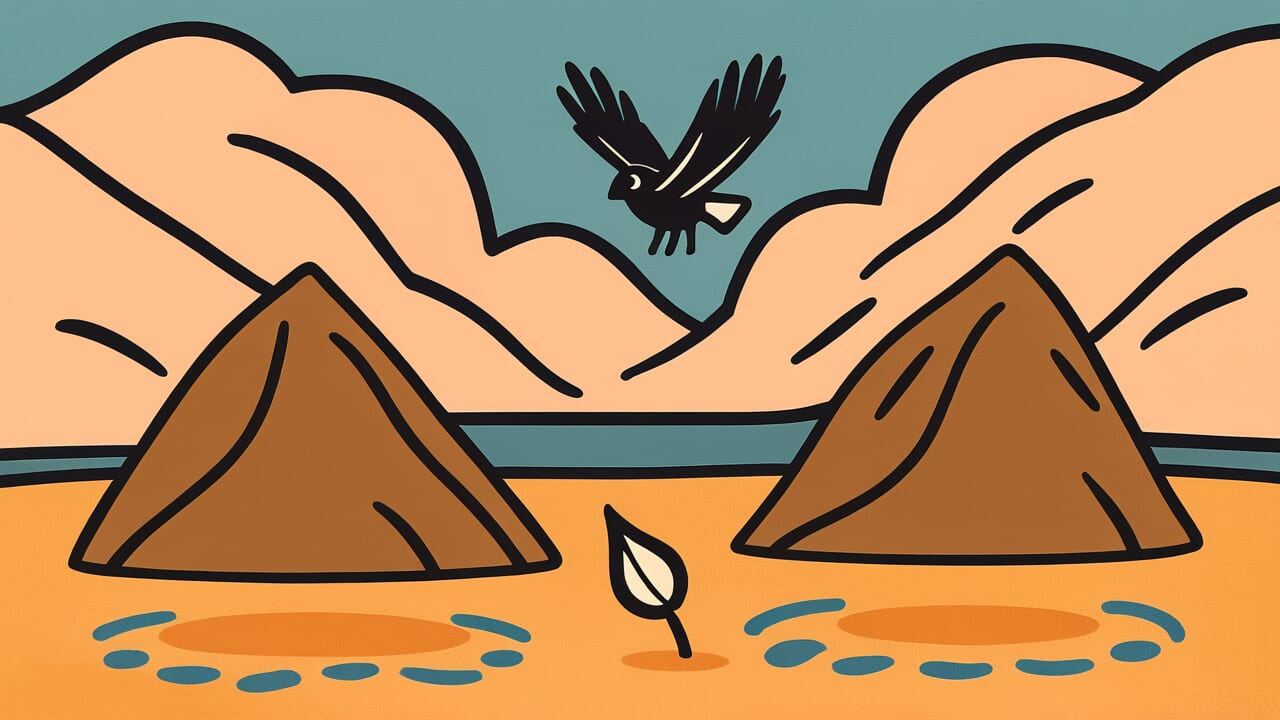How to Read “Duty is heavier than Mount Tai, life is lighter than a feather”
gi wa taizan yori omoku, inochi wa kōmō yori karushi
Meaning of “Duty is heavier than Mount Tai, life is lighter than a feather”
This proverb means that justice and moral duty are far more important than one’s own life. It contrasts the massive weight of Mount Tai with the lightness of a bird’s feather to emphasize this difference in value.
People use this saying when they want to show their determination to do what’s right, even at personal cost. It appears when someone commits to a great cause that might require risking their life. Throughout history, people have also used it to praise heroes and their noble actions.
Today, situations where people literally sacrifice their lives are rare. But the proverb still expresses the spirit of putting justice before self-preservation.
People use it when they choose the right path despite facing personal loss. It describes refusing to ignore wrongdoing, even when speaking up brings disadvantages.
Origin and Etymology
This proverb likely comes from the words of Sima Qian, a Chinese historian. Sima Qian lived during the Former Han Dynasty and wrote the famous historical work “Records of the Grand Historian.” He himself endured a humiliating punishment but continued living to fulfill his mission of recording history for future generations.
Mount Tai is one of China’s Five Great Mountains. People have considered it sacred since ancient times. Its weight symbolizes something of immeasurable importance. “Hongmao” refers to the feather of a large bird. It represents something so light it floats on the wind.
In a letter to a friend, Sima Qian wrote that deaths have different weights. Dying for justice and a great cause is heavier and more valuable than Mount Tai. But dying meaninglessly is lighter than a feather. He endured humiliation and kept living because he had the great purpose of completing his historical records.
This saying spread to Japan and became connected with the spirit of bushido. The value of honoring moral duty and justice above individual life has held an important place in Japanese spiritual culture.
Usage Examples
- Whistleblowing might cost him his job, but with “Duty is heavier than Mount Tai, life is lighter than a feather” in his heart, he decided to reveal the truth
- He embodied the spirit of “Duty is heavier than Mount Tai, life is lighter than a feather” when he rushed into danger to save lives without hesitation
Universal Wisdom
This proverb has endured because humans constantly struggle between self-preservation instincts and the desire to live for something greater.
As living creatures, we’re programmed to prioritize survival. Yet humans can’t be satisfied with mere survival. We have a deep need to believe something matters more than our own lives. We want to live for something meaningful.
This conflict might be what makes us truly human. The instinct to flee from danger battles against the sense of duty to stand firm. The desire to protect ourselves clashes with the need to protect something more valuable.
When these two forces clash in our hearts, we face our most human choices.
Throughout history, many people have faced this choice. Sometimes, those who chose something heavier than their own lives changed society and left hope for future generations.
This proverb expresses both our admiration for human nobility and our reverence for the weight of such choices.
When AI Hears This
From an economics perspective, this proverb hides a surprisingly calculated strategy. In game theory, deliberately limiting your own options to gain others’ trust is called a “commitment device.” An army that burns its bridges has no retreat, so it must fight desperately, making enemies fear it. This proverb has the same structure.
A person who publicly values duty over life eliminates betrayal as an option. Even in situations where most people would break promises to save themselves, this person won’t. Others know this, so they can confidently form cooperative relationships.
A declaration that seems like a short-term loss actually generates long-term reputational capital as “the most trustworthy partner.”
What’s fascinating is how this reputation creates overwhelming advantages in repeated games. Research shows that in repeated transactions, reputation value becomes dozens of times greater than single-transaction profits.
Long-term benefits from being trusted far exceed gains from one betrayal. This proverb recognizes that reputation as an intangible asset is actually rarer and more valuable than life as a finite resource.
Humans seem driven by emotion, but they actually make surprisingly rational calculations. This declaration isn’t irrational idealism but an extremely strategic investment decision.
Lessons for Today
This proverb teaches us that life contains things more important than personal gain.
Of course, it doesn’t literally mean we should treat life carelessly. Rather, it asks whether we’re making daily choices based only on self-preservation and profit calculations.
Ignoring injustice, not helping the vulnerable, always choosing the easy path—these repeated choices gradually erode something precious inside us.
Modern society rarely presents extreme situations requiring life-or-death decisions. But daily life overflows with moments needing small courage. The courage to point out mistakes, to be honest, to maintain your beliefs. Having such courage might be the modern practice of this proverb.
What truly matters in your life? Sometimes it might be worth protecting even at the cost of immediate safety or profit. Thinking about this becomes the first step toward a more meaningful life.



Comments